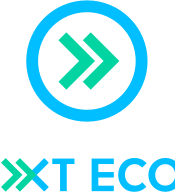
Till We Are All A Part, There Will Never Be A Whole
Disability inclusion globally, but particularly in Africa, is still a long shot. The United Nations tells us that persons with disabilities, too often in Africa, do not have equal access to education, health care, employment opportunities, housing, social protection systems, justice, and cultural expression and participation in political life.
Programs like The Next Economy attempt to bridge the gap that limits young people— including those living with disabilities—from equal access to employment opportunities. Eunice Nwokocha who lives with albinism enrolled with the program in Nigeria in 2023. She shared that prior to joining, she experienced significant discrimination, struggled to secure employment and encountered employers who believed that she was either too fragile or incapable because of her condition. She further explained, “The TNE program instilled the can-do spirit in me and helped me discard the mindset of incompetence that many employers have tried so hard to project on me. Just being accepted into the program was a breakthrough because access to capacity building opportunities like TNE was somewhat difficult.”
The Next Economy program experience was also life changing for visually impaired participants, Awashima Atu. She talks about the program as being “very intentional” in how support was provided. “Communication was a huge tool to bridge the gap in a program like TNE where unlike me, the majority of the participants could see. Training materials were tweaked to fit my needs and trainers tried very hard to translate diagrams, role plays and other aspects of courses that were heavily visual”, she says. But Awashima wouldn’t have gotten this far without TNE employability skills trainer, Kaneng Rwang-Pam, who not only introduced her to the TNE program but eventually hired her into her company, The KRP Foundation for Education & Migration Awareness. Kaneng believes that “we need to see beyond the disability and create more spaces for people with disabilities in our societies who could be as competent as anyone else”. Kaneng employed Awashima as the Inclusion, Diversity and Disability Desk Officer at her foundation and has since then been a mentor to her.
For Sultan Omar Abdilahi in Somali, who lives with a hearing impairment, “understanding the subject matter and lessons in the TNE program came relatively easy, thanks to the facilitators’ effective use of visual aids and projects displayed on the board”. Personal and tailored guidance was also a useful support practice for Sultan who explains that “assigning me a one-on-one mentor enabled me to receive personalized guidance and ensured that I grasped the intricacies of each curriculum fully”.
Like many other things, efforts towards disability inclusion must be collective. Economic growth will be challenging without the inclusion of persons with disabilities, and investments in inclusive employment and livelihood programs like The Next Economy are key to ensuring we address unemployment challenges and include every part of the whole!

